News
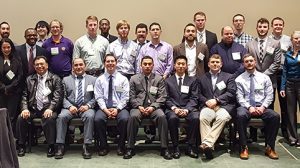
The North Carolina Board of Examiners welcomed a new set of Professional Engineers and Professional Surveyors on Wednesday, January 18, 2017. This catered evening event was for both the spring and fall 2016 licensees who successfully passed the PE or PS exam. The College of Engineering was proud to host this event for the final […]
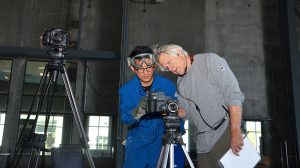
With a wall of fans six-stories high creating winds in a huge, one-of-a-kind laboratory, researchers from UNC Charlotte’s Fire Safety Engineering Technology program and the Insurance Institute for Business and Home Safety (IBHS) are burning building materials and wildland vegetation to study wind-driven wildfire embers. The large-scale tests are part of three-year study to understand, and in the long run mitigate, the risks involved when embers from wildfires spread.
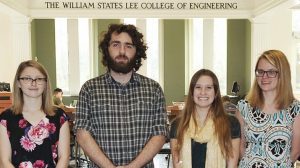
Craig and Darla Albert, who established the Albert Scholars program in the Lee College of engineering in 2014, paid a visit to EPIC in November 2016, meeting with Dean Bob Johnson and the current Albert scholars.
The Department of Mechanical Engineering and Engineering Science held its first-ever Ph.D. Research Symposium on December 2, 2016.
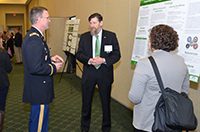
To increase participation in Science, Technology, Engineering and Mathematics (STEM) studies at the college level by tapping into the vast wealth of experience in the United States military, the Lee College of Engineering has won a grant to recruit and work with veterans. The grant adds an engineering specific initiative to UNC Charlotte’s strong collection of veteran services programs.
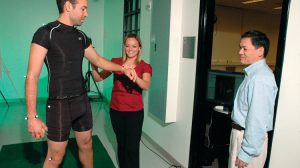
In his motion study research, Dr. Nigel Zheng has worked with subjects ranging from University of Florida quarterback Tim Tebow to the entire New York Mets pitching staff.
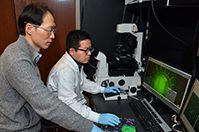
With hundreds of billions of neurons and thousands of trillions of synaptic connections between them, the human brain is the most complex system on earth. This complexity makes studying the brain an almost overwhelming challenge with nearly infinite research options.

Offering advanced studies in energy, a new program within the Master of Science in Engineering degree at UNC Charlotte provides non-engineers and engineers alike the chance to further their careers in power and energy.

The reality of the competition was that to win, you had to excel at three tasks. Mechanical engineering student Nicolas Hammann did, and he won, opening up incredible experiences for him across the world. He just couldn’t tell anyone.
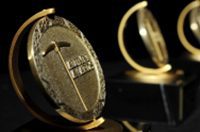
The UNC Charlotte Alumni Association recognized eight individuals, including Dhiaa Jamil and Brett Tempest from the Lee College of Engineering, for outstanding contributions to their professions, their communities and the university at a ceremony April 9.